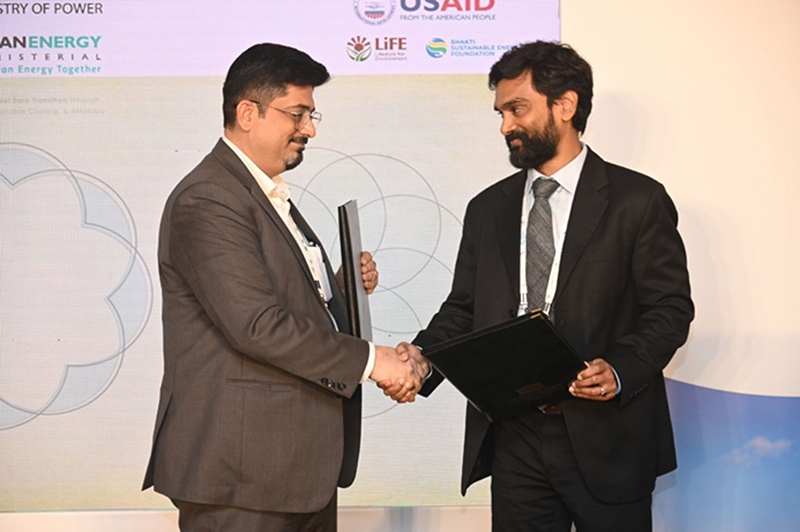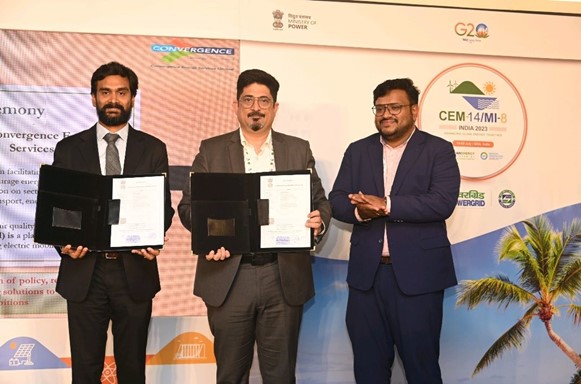Access to cooling is now recognised as an urgent global challenge for over 1.2 billion people who face serious barriers to benefiting from cooling technology, leaving them at high risk of extreme heat As temperatures rise and heat waves become more intense, India’s cooling demand is forecasted to grow exponentially. This will put an enormous strain on electricity systems and drive up emissions. In India, almost 90% of households rely on fans to get relief from heat and ventilation. As per a recent survey, even among homes that utilize room air conditioners for thermal comfort, approximately 70% tend to use fans simultaneously. In 2021, it was estimated that ceiling fans were responsible for roughly 40% of India’s residential electricity usage, and they are projected to remain a significant contributor, accounting for 32% by 2030. Due to their sheer volume, the total annual energy consumption of fans is currently only slightly lower than the total annual energy consumption of room air conditioners in India. Despite a rise in the penetration of room air conditioners in households, a significant portion of the population will still not be able to afford air conditioning in the next two decades. Consequently, dependency on natural ventilation and fan-assisted ventilation to maintain thermal comfort will still persist.

Recognising the fan as a key appliance and its growing energy consumption, Energy Efficiency Services Limited (EESL) has launched the National Energy Efficient Fan Program, which aims to deploy 10 million energy-efficient fans within an aggressive timeline of 12 months. On 22 July 2023, EESL organised a side event “Accelerating India’s transition towards Net Zero through Energy Efficiency, Sustainable Cooling & Mobility” at the 14th Clean Energy Ministerial (CEM14) in Goa, wherein EESL and its subsidiary Convergence Energy Services Limited (CESL) forged multiple partnerships across the energy sector.
During the side event, a Memorandum of Understanding (MoU), signed between Shakti Sustainable Energy Foundation and Energy Efficiency Services Limited, was exchanged between Shri Vishal Kapoor, MD and CEO, EESL and Mr Koyel Kumar Mandal, Chief of Programmes, to mark the collaboration in developing a strategic partnership aimed at driving the market transformation towards energy-efficient fans. Shakti’s engagement will focus on a broad set of activities, including the preparation of program design documents, business models, financial models, and the development of digital Management IT tool linked with the state energy efficiency index. This initiative aims to accelerate the adoption of energy-efficient fans in the Indian market supply chain by targeting fan associations and manufacturers, retailers, residential consumers etc. It is expected to avoid an average peak demand of 400MW and reduce CO2 emissions by approx. 1 million tonnes per annum under the National Program, aligning with Net Zero Targets.

A Memorandum of Understanding (MoU) between Shakti Sustainable Energy Foundation and Convergence Energy Services Limited (CESL), was also exchanged between Shri Vishal Kapoor, MD and CEO, CESL and Mr Koyel Kumar Mandal, Chief of Programmes, Shakti. The MoU was signed with the intent to develop a strategic partnership to jointly work and collaborate to increase the adoption of sustainable mobility technologies in the areas of electric mobility. The MoU aims to identify and facilitate the implementation of policy, regulatory, financial, technology, training, and capacity-building solutions to support the country’s sustainable mobility ambitions, with a focus on the area of electric mobility.
